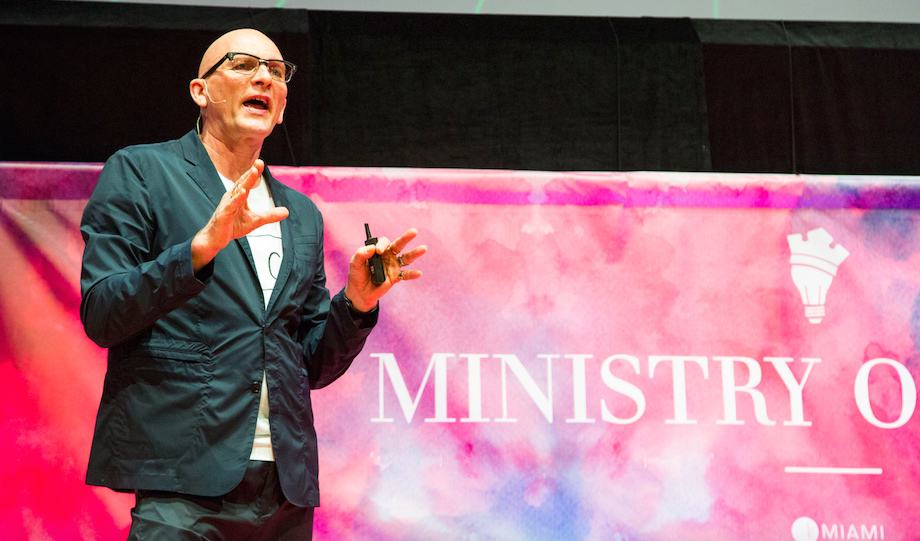Recently, at the hotel industry’s answer to Fashion Week, LE Miami, somewhere between the heat and the hotels at their Ministry of Ideas event, we were listening to Swedish economist and writer, Kjell Nordstrom give his views on the global market place and brands in travel. The talk was moderated by The Miami Beach Edition’s Director of Culture & Entertainment Josh Wagner – a chap who in our view embodies what this industry should be about – being hospitable.
Nordstrom delivered possibly one of most inspiring and community-inducing led talks we’ve witnessed. The topic centred around what the traveller of the future will look like. A firm a believer that only imagination and innovation can place societies and companies centre stage, he encouraged the hotels, press and travel buyers in the room to look at issues on a more macro level. Rather than operating within the comfort zone of a hotel, a travel agency or a corporate organisation – businesses should adopt a manor more aligned with generating ideas that can create a temporary monopoly within a market place.
He remarked on how the internet has killed the monopoly on knowledge, illustrating that digitalisation and urbanisation have contributed to this shift. Further stating that a university education is no longer a guarantee of a better life.
“We (people), in order to articulate knowledge, need to put it on paper – and anything that can be digitalised will be digitalised.”
Kjell went on to explain that there is a new type of knowledge – tacit knowledge, a silent knowledge, in other words we know more than we can say and “just because we can’t say it, doesn’t mean we don’t know it”. Tacit knowledge itself is community based and derived from sharing views and perspectives in a variety of topics within the global landscape. Referencing the hotel industry he commented on how “one should hire for the attitude and train for the skill”.
Nordstrom further remarked how time is intrinsically to cost, using the car service phenomenon Uber as an example. The transaction cost being increased when the extremely personalised service is required on a global ad hoc basis. Going further with analogies and using the print media as an example, Kjell highlighted the system hierarchy within the print publishing industry, citing that it was actually publishing at the centre and the content at the periphery. However, with a simple redefinition of the centre publishing soon became the periphery, with content now becoming the centre. Thus, creating a need for the internet as a mechanism to share content in a free and more democratic environment, citing escalating costs and time being two of the main contenders.
Going more macro the economist referred to every city as a “machine”, with smaller machines working within them. Nordstrom completed the afternoon by going on to highlight the importance of originality, by sharing a quote: “There are only 27 books you need to read, the other stories have been told.”
He compared imitation to karaoke, and used comparable markets such as the airline, automotive and hotel, he stated “Reclaim originality by going back to art – the beginning. By creating something that is truly original and give birth to a temporary monopoly”.









